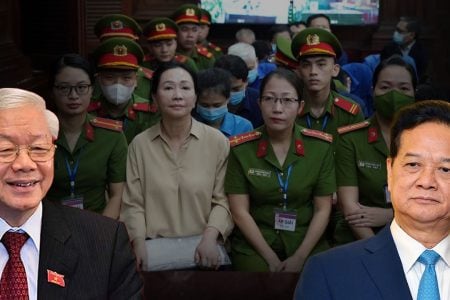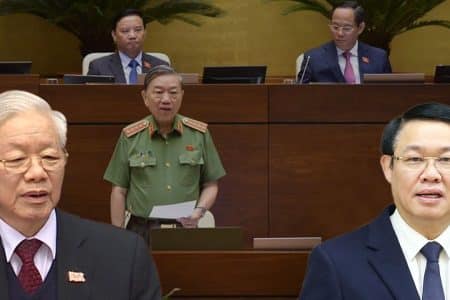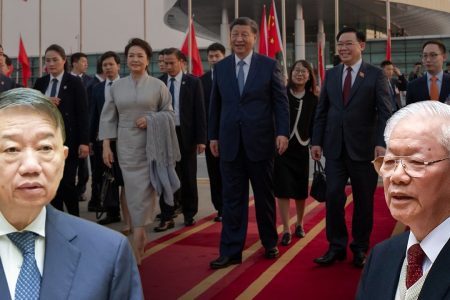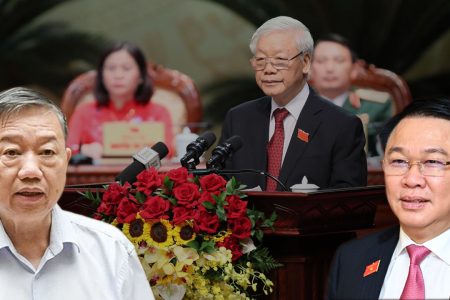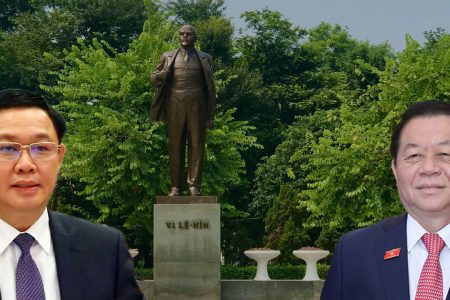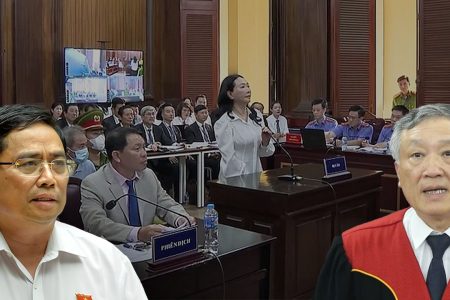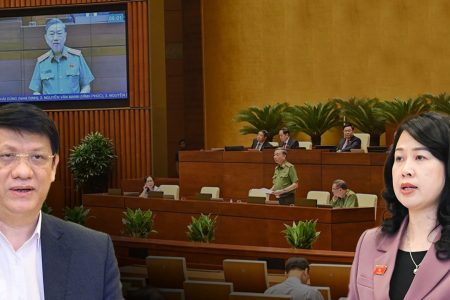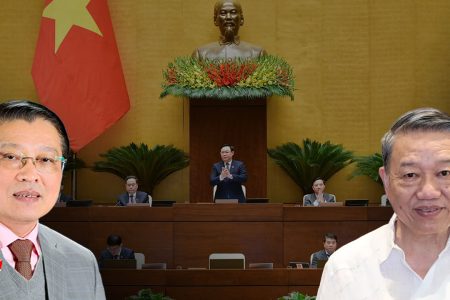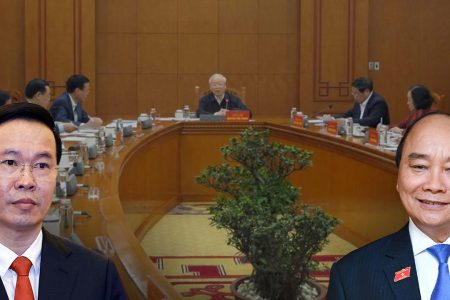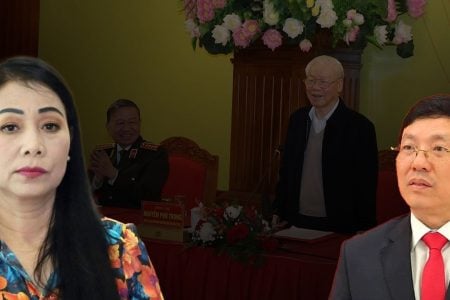
The dollar price hike makes Vietnam’s foreign debt more problematic
The VND/USD exchange rate announced by the State Bank of Vietnam on October 19 has a ceiling rate of VND24,846 for one US dollar. According to an expert in the banking sector, the high foreign exchange rate makes a burden on paying foreign debts in Vietnam.
According to the Kinh te & Do thi (Economic and Urban) newspaper network, the USD exchange rate at commercial banks on the morning of October 19 continued to increase sharply compared to the previous session.
At 9:20 a.m., Vietcombank listed the USD buying at VND24,240 and selling price at VND24,550 a dollar, an increase of VND90 for buying and VND320 for selling compared to the previous listed level.
Meanwhile, on the free market in Hanoi, the USD traded (buy-sell) at around VND24,662 and VND24,722, respectively.
Dr. Nguyen Quang A, co-founder and former member of the Board of Directors of Vietnam Prosperity Bank (VPBank), said that the increase in the foreign currency exchange rate against the Vietnamese dong has a significant impact on public debt repayment obligations. for Vietnam. He told Radio Free Asia (RFA):
“Vietnam’s foreign debt payable in USD, in terms of dong, will increase, and this will increase the burden of paying principal and interest on the national debt.”
In the report of the Ministry of Finance to the Prime Minister in March this year, from 2022 to 2024, the government will have to repay more than VND1,000 trillion of public debt.
On the basis of GDP reassessment, it is forecasted that by the end of 2022, public debt will account for about 45-46% of GDP, government debt is about 41-42% of GDP, and the country’s external debt will be about 40-41% of GDP. The target of direct debt repayment obligations compared to state budget revenue is expected to be about 22-23%.
Dr. Chu Hong Quy, lecturer at National Economics University in a message sent to RFA said:
“The increase in the USD/VND exchange rate will make the public debt in VND larger and to make up for the shortfall, the Vietnamese government will issue more cash, and in fact, there are already signs of an increase in cash issuance. ”
This lecturer emphasized, when the dong depreciates, the issuance of more dong will cause damage to the entire population.
Vietnamnet online newspaper said that since the beginning of October, the State Bank has pumped nearly VND120 trillion into the market to reduce the interest rate to 5% per year in recent days.
Particularly in the trading session on October 12 to deal with the massive withdrawal of money from SCB customers, the State Bank net injected more than VND25 trillion.
However, according to Dr. Nguyen Quang A, the recent increase in the exchange rate band between USD and VND by the State Bank of Vietnam from 3% to 5% and the current increase in foreign currency prices do not have much impact on the domestic economy.
He said that the high USD price is good for exports, making Vietnam’s exports more competitive, but imported goods will cost more and be harder to sell.

Similarly, Vietnamese traveling abroad will have to pay more dong while foreigners coming to Vietnam will benefit more. Mr. A affirmed:
“Vietnam relies heavily on exports, so overall (the current increase in the USD/VND-PV exchange rate) doesn’t have too much of an impact on the Vietnamese economy.”
Mr. Nguyen Pham Muoi, who was a longtime reporter for Dow Jones – a website specializing in economics and securities of the Wall Street Journal, said that the State Bank’s increase in margin to 5% was to adapt to the USD appreciation in the world.
Given that Vietnam is controlling the exchange rate and inflation well and the State Bank of Vietnam is doing what is necessary to protect the Vietnamese dong and macroeconomic stability, Mr. Nguyen Pham Muoi forecast that the exchange rate will not increase sharply in the near future.
According to him, keeping USD is not profitable, is just keeping asset value while keeping VND profitable when the current interest rate of 6.6-7.5%/year offered by commercial banks is reasonable and higher than the inflation.
Mr. Do The Dang, a businessman in Hanoi, said that the current increase in the foreign currency rate is related to the arrest and investigation of some key figures of the current Van Thinh Phat Group.
He said the ability of the bank to support businesses declined as a result of a series of banks due to the blockade or special control of Van Thinh Phat.
He told RFA via text message as follows:
“The increase in the USD/VND exchange rate will have a great impact on living standards when prices of goods and services increase accordingly. I believe the USD price will continue to increase when the Vietnamese banking system is in a strong crisis.
My family has switched to reserving USD instead of keeping Vietnamese dong.”
An employee of Izumo Trading Co., Ltd., based in Cau Giay district (Hanoi), specializing in import and export transport, told reporters that this business charges freight in USD, so this week, the company’s customers are not satisfied when the freight charge increases with the USD/VND exchange rate.
According to Dau Tu Newspaper, while imported goods become more expensive and the pressure of foreign capital withdraws from the Vietnamese market, it is still difficult for domestic exporters to benefit from the devaluation of the dong.
The main markets of enterprises in seafood, textiles, and agricultural products… are still mainly European, Asian, and South American markets… and so these businesses have not really benefited as expected.
In addition, along with the increase in global inflation, the real income of people in the main markets of Vietnamese goods declined, and their purchasing power also decreases.
Thoibao.de (Translated






